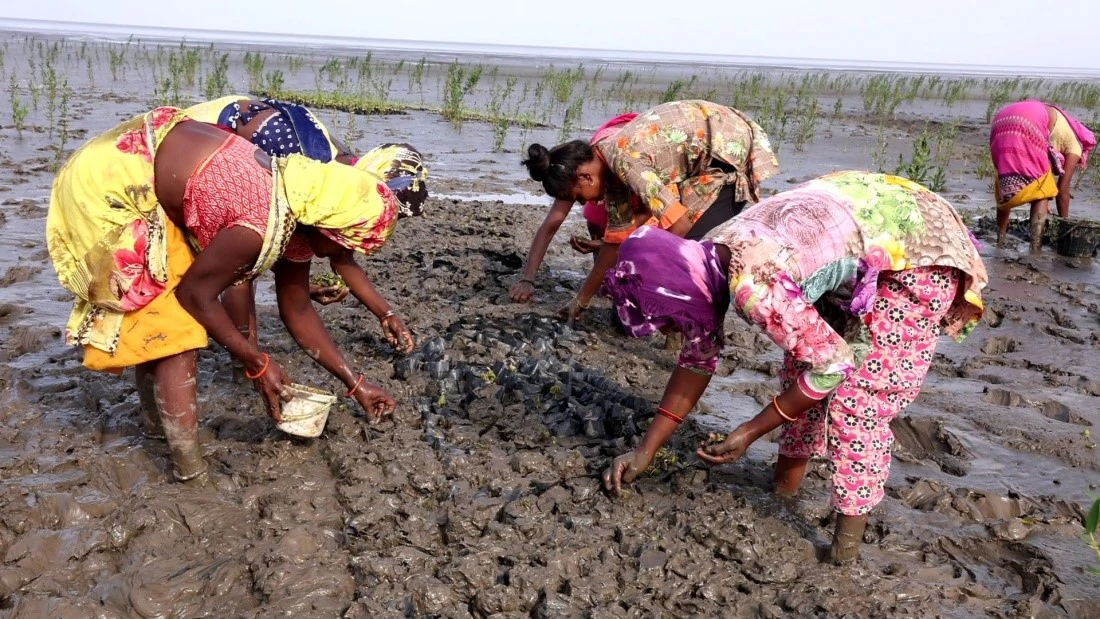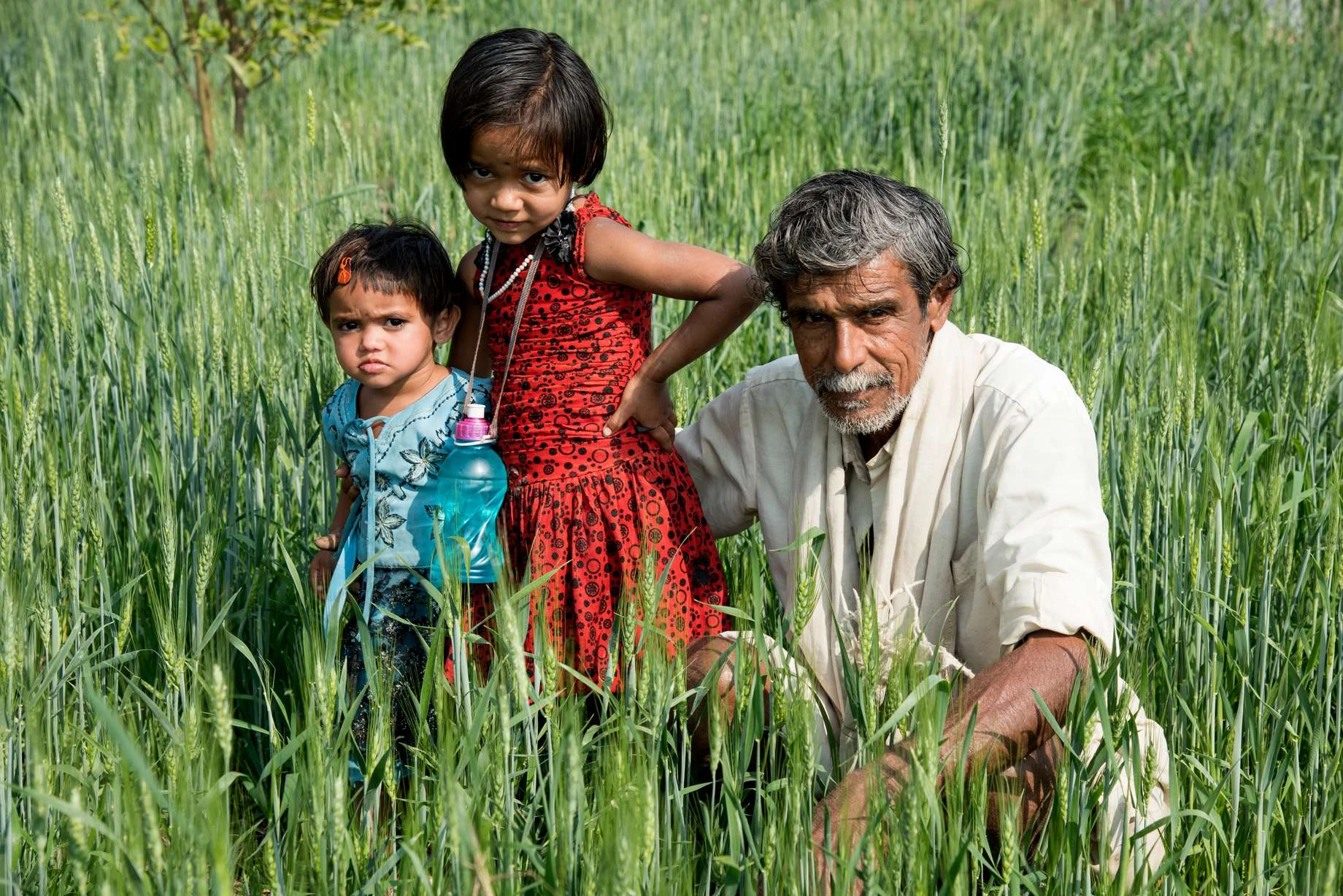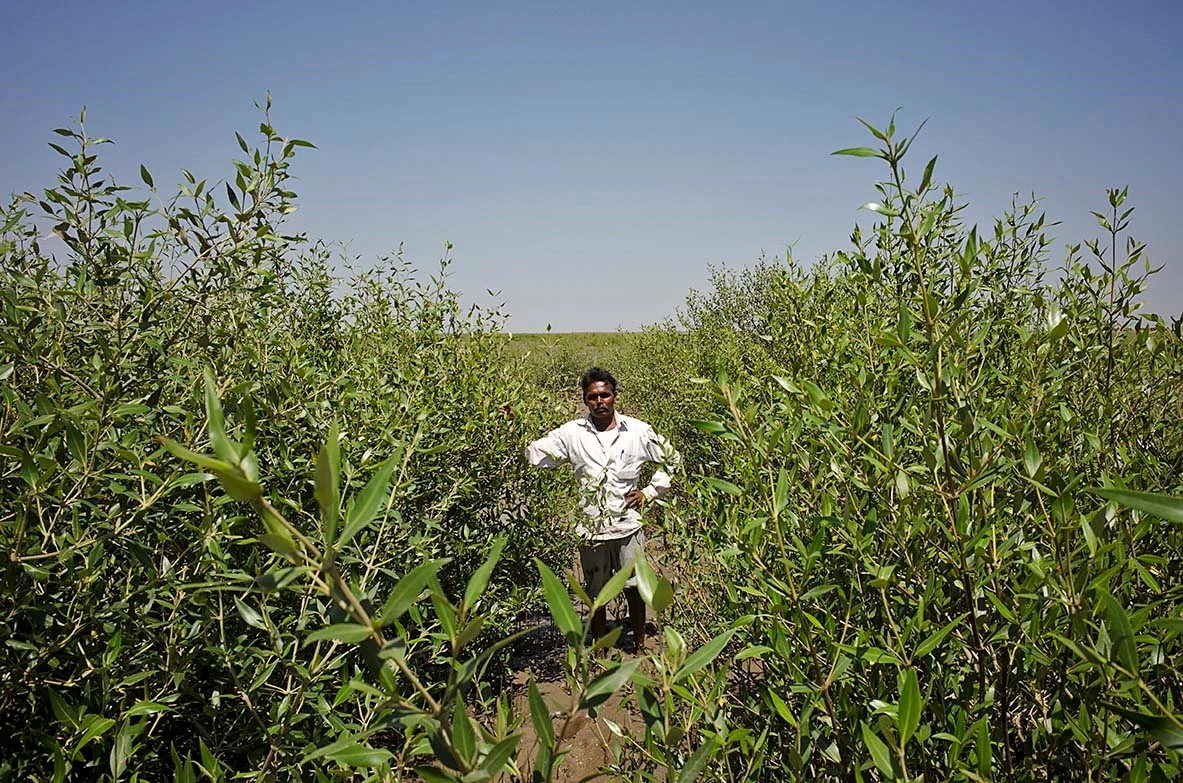VIKAS Centre for Development (VIKAS CFD) envisions a Great Green Wall of Gujarat, a multi-species bio-shield initiative spanning 28,680 hectares of Gujarat’s coast, covering 23 coastal talukas in South and Central Gujarat, as well as the Kachchh and Saurashtra regions. Comprising multiple species of mangroves, this project aims to help mitigate and adapt to climate change, conserve biodiversity and enhance the livelihoods of individuals engaged in fisheries, livestock, and agriculture.
VIKAS CFD partnered with the Earth Exponential team to better communicate the project’s climate lens and secure funding.
Helping the project become funder-ready
Step 1: Co-developing an integrated project proposal
After agreeing to be featured on the Earth Exponential platform, the VIKAS CFD team worked with us to build a comprehensive project proposal in early 2023. The project was initially designed to help alleviate poverty in the region through mangrove restoration efforts, and enhance incomes through nature-based livelihoods like agriculture, livestock, fisheries, and non-timber forest produce.
In consultation with the VIKAS CFD team, we strengthened the climate lens in the project, by accounting for:
- Changes in climatic patterns, such as the increasing incidence of cyclones on the western coast and in Bharuch district, as well as soil erosion and salinity ingress, and how they are impacting local climate risks and communities;
- The urgent need for climate resilience, and the role mangroves play in protecting coasts and communities;
- The need to protect/restore natural carbon sinks in the region, like mangroves, given their high carbon sequestration potential
As the Earth Exponential team’s understanding of the local socio-economic context grew, including the communities’ dependence on mangroves and need for improved livelihoods, we ensured VIKAS CFD's equity lens remained central to the narrative, identifying Schedule VII and SDG priorities.
Step 2: Strengthening the MEL framework
Civil society organisations often find it challenging to capture a project’s climate-related benefits accurately; funders too seek such details during preliminary conversations. To help build capacity, we worked with VIKAS CFD and a partner organisation to strengthen the Monitoring and Evaluation Learning framework for this project, to track and measure climate impacts and other co-benefits effectively. This process enabled knowledge sharing, resulting in VIKAS CFD’s improved understanding of how to capture the project’s impacts.
Step 3: Conducting preliminary due diligence
To supplement VIKAS CFD’s trusted legacy and ensure the project was funder-ready, we also conducted preliminary due diligence during this phase. This included assessing regulatory and financial compliance and conducting reference checks with previous/current funders.

Securing funding for the project
Step 1: Reaching out to like-minded funders
The Earth Exponential team had spent several months cultivating relationships with corporate philanthropy across India and understanding their funding strategies. The MakeMyTrip Foundation, for example, were interested in funding ecosystem restoration, with an increasing focus on climate action.
Step 2: Pitching the project
Sensing potential alignment, we pitched VIKAS CFD’s mangrove restoration project to MakeMyTrip Foundation’s CSR team – leading to two follow-up calls with the CSR team and then the Trustees. We worked closely with Rajesh Shah and the team, refining storytelling to align with funder interests – from clarifying ecosystem benefits due to planting multiple species of trees, to highlighting climate-related benefits in addition to ecosystem and socio-economic aspects. Armed with this holistic narrative, Rajesh Shah’s passion, expertise, and natural flair for storytelling convinced the Trustees to fund this project. The preliminary due diligence we conducted also established the funder’s trust in the project, which was further validated by a field visit by the funder.
Step 3: Signing the MoU
MakeMyTrip Foundation and VIKAS CFD signed a Memorandum of Understanding in July 2023.

Impact
Supported by MakeMyTrip Foundation, VIKAS CFD started planting mangrove saplings in July 2023 along the coastal belt of Devla village in Jambusar taluka


 We are grateful to the India Climate Collaborative (ICC) for giving appropriate visibility to VIKAS Centre for Development’s work and helping raise funds for our mangrove bio-shield project, Great Green Wall of Gujarat. The entire process from introduction to initiation of the project was handled very earnestly and effectively by the ICC team. This led not only to the project being formalised, but also established a warm working relationship amongst the funder, the ICC team, and our team at VIKAS.
We are grateful to the India Climate Collaborative (ICC) for giving appropriate visibility to VIKAS Centre for Development’s work and helping raise funds for our mangrove bio-shield project, Great Green Wall of Gujarat. The entire process from introduction to initiation of the project was handled very earnestly and effectively by the ICC team. This led not only to the project being formalised, but also established a warm working relationship amongst the funder, the ICC team, and our team at VIKAS.
– Rajesh Shah, Founder Trustee, VIKAS Centre for Development
 Climate change is a cross-cutting action area across the work we support at MakeMyTrip Foundation. Earth Exponential has been a pathway to explore the climate ecosystem more deeply and connect with credible organisations working in the space. Through the platform, we were able to connect with VIKAS Centre for Development - an outstanding organisation building a mangrove bio-shield along the coast of Gujarat - and scale our efforts towards finding robust, sustainable, and holistic solutions to the climate challenge.
Climate change is a cross-cutting action area across the work we support at MakeMyTrip Foundation. Earth Exponential has been a pathway to explore the climate ecosystem more deeply and connect with credible organisations working in the space. Through the platform, we were able to connect with VIKAS Centre for Development - an outstanding organisation building a mangrove bio-shield along the coast of Gujarat - and scale our efforts towards finding robust, sustainable, and holistic solutions to the climate challenge.
– Yuvaraj Srivastava, Trustee, MakeMyTrip Foundation; Group Chief Human Resource Officer, MakeMyTrip Ltd.
Learn more about VIKAS Centre for Development’s multi-species bio-shield for coastal communities and Earth Exponential.

Published on: 1st April 2024
Subscribe to our Newsletter
Join ICC's monthly newsletter and read more about uplifting climate narratives, innovative solutions, and other updates.

